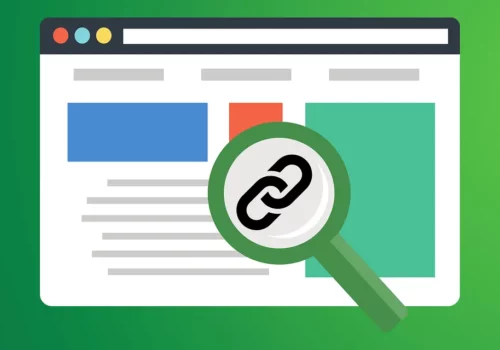Imagine you’ve built a fantastic shop in a bustling town square. But just because it’s there doesn’t mean everyone automatically knows about it or comes rushing in to buy your goods.
It’s like the saying, “You can lead a horse to water, but you can’t make it drink.”
In the same way, when local business owners set up websites, they can’t just sit back and wait for customers to find them. Research shows that many struggle to get noticed online, with around 77% facing this challenge.
Some might feel like small fish in a big pond, thinking that giants like Google only favour the big brands. But just because some businesses are more famous doesn’t mean smaller ones can’t compete.
It’s all about using the right tools and strategies, like doing careful research on local keywords and having a solid local SEO plan. With the right approach, even small businesses can stand out online and attract more customers.
Let’s learn more about Local SEO Keyword Research.
Why Is Local SEO Important?
Local SEO is important because it helps small businesses connect with people nearby who might be interested in what they offer.
Let’s say you run a business that fixes things around the house. You’d want to make sure people in your area know about you because they’re the ones who might need your help.
That’s where local keyword research comes in. It helps you figure out what words people in your area are using when they look for services like yours online.
So, instead of trying to reach everyone everywhere, you focus on the folks who are already interested and close by. That way, you’re more likely to get customers who can easily reach you and use your services.
What Makes Local SEO Keyword Research Unique?
As I’ve explained, the main goal of local SEO and local keyword research is to get more people interested in your business and turn them into customers.
But local SEO isn’t just about targeting a specific area. It’s also about some unique things, like how Google decides which businesses to show in local searches.
When it comes to local searches, Google looks at different important things, like the location of the person searching and how relevant the business is to what they’re looking for.
Factors That Affect Local Search Ranking Include:
- Where the person searching is located.
- What people say about your business in online reviews.
- Listings of your business name, address, and phone number.
- Having a Google My Business profile with relevant keywords.
- Your rating on Google Maps.
- Interest in your business on social media.
Some Tips Google Offers to Help You Improve Your Local SEO:
- Confirm your location to make sure people can find you easily.
- Update your business hours, especially during holidays, so customers know when you’re open.
- Pay attention to reviews and respond to them. This shows you care about feedback and can improve how people see your business.
- Add photos and details about your store or products. This gives customers a better idea of what you offer.
- Google also looks at how relevant your business is, how far away it is, and how well-known it is online. This includes things like your website’s content, links to your site from other places, and listings in directories.
- Local keyword research focuses on using specific words related to your location. For example, if you’re in Austin, Texas, you’d want to use terms like “Austin restaurants” instead of just “restaurants.”
Voice search is also important for local SEO. Many people use voice assistants to find local businesses.
So, it’s essential to make sure your business is easy to find through voice searches too. Research shows that lots of people use voice search every week, especially through smart speakers like Amazon Echo or Google Home.
How To Find The Best Local Keywords?
Local SEO Keyword Research is important, but how do you find the best ones? The process isn’t as difficult as it may seem. Here are some tips you can follow.
1. Find Industry-Related Local Keywords
- Think about what you offer and what you want to promote. Make a list of words related to your business.
- You can also find local keywords by using Google. Type in a main keyword and look at the “related searches” section at the bottom of the page. For example, if you’re a dentist in Miami, you might target the keyword “Miami dentist.”
Then, you can:
- Check how popular your keywords are by doing online research. Tools such as Ubersuggest, ByteGain, Google Keyword Planner, and Google Trends can be helpful.
- Another way is to type a keyword into Google and see what suggestions come up. These can give you more ideas for local keywords related to your business.
- For instance, if you run a coffee shop in Seattle, you might start with keywords like “Seattle coffee shop,” “best coffee in Seattle,” or “Seattle espresso.” Then, you can use tools to see how many people are searching for these terms and adjust your strategy accordingly.
2. Use Keyword Modifiers
Using keyword modifiers helps you aim your efforts at certain types of searches, bringing in more targeted traffic and improving your local SEO.
These modifiers include terms such as “nearby,” “close to,” or “around here.” For instance, instead of simply using “plumber,” you could opt for “plumber near me” to focus on individuals in your vicinity.
You can find these terms by using tools like Autosuggest, looking at related searches, or researching what your competitors are using.
For instance, if you’re a bakery in San Francisco, you might use modifiers like “best bakery near me” or “local bakery in San Francisco” to attract customers in your area.
These specific terms can help you stand out in local searches and bring in more customers.
3. Consider Keyword Intent
Think about what your potential customers want when they search online. Are they looking to buy something, learn more about a product or service, or just browse?
Once you know what they’re after, you can pick the right keywords and create content that meets their needs.
You can use tools like Autosuggest to see what words people are typing into search engines. This can give you a better idea of what your customers are looking for and help you tailor your website to match.
For example, if you run a pet store, you might notice that people often search for “best dog food” or “how to train a puppy.” Knowing this, you can create content that answers these questions and helps your potential customers.
This way, when they search for these terms, they’ll find your website and be more likely to become customers.
4. Google Places Search Bar
Another helpful tool for finding local keywords is the search bar on Google Places.
Here’s how it works: when you type in a location in the search bar, you’ll see a list of places and suggested search terms related to that area.
For example, if you’re in New York City and you type “New York City” into the search bar, you might see suggestions like “restaurants in New York City” or “hotels near me.”
Once you have a list of keywords, it’s important to analyze them to see which ones are the best fit for your business.
For instance, if you run a clothing store in San Francisco, you might see suggestions like “boutiques in San Francisco” or “fashion stores near Union Square.”
By analyzing these keywords, you can choose the ones that are most relevant to your business and use them to optimize your website for local searches.
Implicit Vs. Explicit Local Keywords
When you’re doing local keyword research, there are two main ways to focus on your audience: Implicit and Explicit.
Implicit targeting happens when someone searches for something general, like a “hardware store,” without specifying a location. Google then tries to guess where you are and shows you local results.
To determine which implicit local keywords matter for your business, you can conduct research online or ask your customers how they’d find a business like yours in their area.
Explicit targeting, on the other hand, involves specific search terms that include a location, like “Dentist in Santa Barbara” or “Hairdresser in Venice Beach.”
For example, if you run a pizza restaurant in Chicago, someone might search implicitly for “pizza delivery” without mentioning Chicago.
Google would then show them local pizza places in their area. But if they explicitly search for “pizza delivery in Chicago,” they’re specifically looking for pizza places in that city.
FAQs
🛠️ How do I start local SEO keyword research?
Begin by identifying keywords relevant to your business and location using tools like Google Keyword Planner.
🗺️ Why is local SEO important for my business?
Local SEO helps your business appear in local search results, attracting customers from your area.
🔍 What tools can I use for local SEO keyword research?
Popular tools include Google Keyword Planner, Ahrefs, Moz, and SEMrush.
🧩 How do I choose the right local keywords?
Focus on keywords that are relevant to your business and have a good search volume in your area.
🌐 Can local SEO keyword research help with Google My Business?
Yes, using the right keywords can improve your visibility on Google My Business.
📍 What are long-tail keywords in local SEO?
Long-tail keywords are more specific keyword phrases that target a narrower audience, often easier to rank for.
🛒 How do local keywords help in online business?
Local keywords attract nearby customers, increasing the chances of them visiting your store or using your services.
Quick Links:
- Does Geotagging Photos Help Local SEO Rankings?
- Boost Your Website Traffic With Local SEO
- SEO vs. Local SEO: What’s the Difference?
- Techniques To Improve Your On Page Local SEO
- Jitendra Vaswani CEO of ByteGain (AI SEO Copywriting & Local SEO Tool)
Conclusion: Can Local SEO Keyword Research Boost Your Business?
In conclusion, it’s crucial for small businesses to include local keyword research in their marketing plans.
Effectively using local SEO keyword research can greatly improve your online presence and attract more local customers.
Understanding the specific words and phrases people in your area use when searching online allows you to tailor your content and ads to their needs. Tools like Ubersuggest make it simple to find these keywords.
Considering the intent behind a search is also important for improving online visibility. If you want local customers to find you online, you need to understand what they’re looking for.
Have you used local keyword research for your business? Share your experiences in the comments below.





